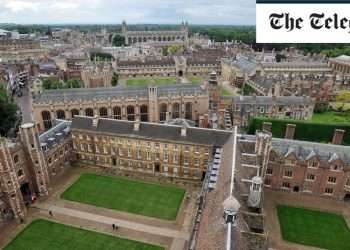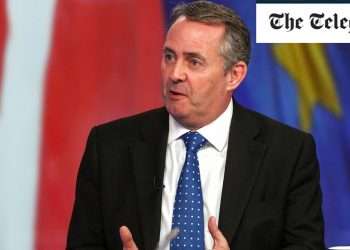
SIR – It seems that the public’s distrust of “the Establishment” is now so complete that there are no institutions or individuals whose arguments will be believed. How else to explain the latest polls, which show a surge in support for the Leave campaign? About 100 MPs are apparently proving more persuasive than the the International Monetary Fund, the Institute for Fiscal Studies, the Bank of England, the World Bank, the President of the United States, the British Government, and the leaders of all major UK parties.
I therefore ask every reader to remember that the EU referendum is not about immigration or short-term economic discomfort. It is a profound geopolitical choice between being alone or being with friends. Once, perhaps, Britain was a sufficiently mighty nation to countenance such isolation. Today, confronting the challenges of climate change, globalisation, terrorism and ceaseless technological change, it is only by working closely with others that we can hope to prosper in the long run.
Rather than allowing a distrust of “the Establishment” to justify a vote to leave the EU, the public should reflect on how much better it always is, when trying to get difficult things done, to work with friends and colleagues – and so vote to Remain.
David Fell
London W6
SIR – We are a group of young people from across Europe, all born since Britain entered the European Economic Community in 1973.
For us, the EU isn’t a set of rules and regulations or a faceless and unaccountable bureaucracy; it has made a real difference in our lives. We have grown up in a Europe where the carnage of the First World War and the Second World War is unthinkable. We don’t face conscription, trenches, gas, aerial bombing or industrialised genocide. Certainly Nato and the UN have been essential in preventing war, but the EU has shown us – in a way these other, more global organisations cannot – what we have in common as Europeans and what we have to gain when we cooperate in ways beyond the strategic and defensive.
The free movement of people in the EU has meant that we could meet, fall in love and live with our partners. Love across borders no longer means lengthy periods of separation, difficulty obtaining visas, struggles finding employment, or limited opportunities to meet in the first place.
The EU has also helped to make the continent we bequeath to our children better than the one we inherited from our parents. Our farms, fisheries and forests are sustainable, and our urban and rural environments have enjoyed substantial investment from the EU. In the East Midlands alone – the present heartland of Brexit – the EU has been responsible for £500 million of funds for local businesses, councils and initiatives between 2007 and 2013.
Please don’t throw all that away on June 23. If there are things we don’t like about the EU, let’s work to change it rather than pretend it is irreparable or entirely undemocratic.
Andrew Wells
Bremen, Germany
Emma Hart
St Andrews, Fife
Louise Settle
Tampere, Pirkanmaa, Finland
Felicia Gottmann
Newcastle-upon-Tyne
Ludivine Broch-Hinks
London
Erika Manders
Göttingen, Germany
David Fallon
Newcastle-upon-Tyne
Aleksandra Bovt
Göttingen, Germany
Chris Eastburn
Innsbruck, Austria
Stephen Hufton
Maastricht, Netherlands
Robert-Jan Wille
Munich, Germany
Monica Azzolini
Edinburgh
Madeleine Brook
Stuttgart, Germany
Christa Gray
Reading, Berkshire
James Young
London
Anna Pitt
Oxford
Jenny Skipp
Trier, Germany
Joanna Britton
Brussels, Belgium
Christiana Werner
Essen, Germany
Sebastian Wilde
Göttingen, Germany
Daniele Panizza
Vienna, Austria
Katrin Berndt
Bremen, Germany
Karen Wendland
Bristol
Guido van Meersbergen
Florence, Italy
Tiffany Shumaker
Oxford
Iain and Varpu Lauchlan
Edinburgh
James Taylor
Brussels, Belgium
Catherine Ridd
Bristol
SIR – On June 23 I intend to vote for whichever side irritates me the least.
It will be a damn close-run thing.
Dr Paddy Fielder
Woodbridge, Suffolk










